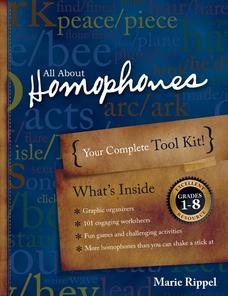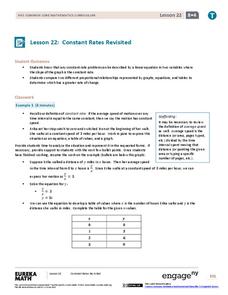Wilderness Classroom
Ocean Life
Our oceans are composed of many complex relationships. Young oceanographers explore relationships between organisms, understand the world ocean's currents, and discover the effects of water pollution and how it behaves. There are three...
Curated OER
Sharing My Older Friend With Others
Elementary learners explore the difference between aged characters and young characters in literature. They use Venn diagrams to compare and contrast the attributes given to both younger and older characters in different pieces of...
Curated OER
Building Character: Holocaust Survivor Testimonies
Host a fishbowl discussion to help your class recognize and articulate the relationship between words and the character traits they describe. They analyze Holocaust survivor testimonies and apply the character traits they observe. No...
Curated OER
Gender Roles: Exposing Stereotypes
A series of activities help middle- and high-schoolers identify and explore gender stereotypes and how they can lead to violence and abuse. Use think-pair-share to activate whole class brainstorming about what it means to "be a man" and...
Kentucky School for the Deaf
Levels of Organization within an Ecosystem
From tiny organisms to entire biomes, young scientists examine the interdependent relationships tying all living and non-living things together with this collection of ecology resources.
Read Theory
Analogies 3 (Level 6)
Positive and negative may be opposites, but what does that have to do with the words clean and filthy? Ask your pupils to consider word relationships as they complete the 10 analogies presented here. Note that the exercise gradually...
Read Theory
Analogies 2 (Level 8)
Examine nuances in word meanings with an exercise based around word analogies. Learners use the sentences and frames provided to help them determine the relationships between words. They complete 10 analogies.
National Science Teacher Association
Middle School Sampler: Science
Focus on inquiry-based learning in your science class with a series of activities designed for middle schoolers. A helpful packet samples four different texts, which include activities about predator-prey relationships, Earth's axis and...
Curated OER
All About Homophones
Put the fun back in reading fundamentals with an interactive set of lessons about homophones. Learners of all ages explore the relationships between words that sound the same but have different meanings, and complete a variety of fun and...
Curated OER
Teaching Word Meaning Synonyms, Antonyms, and Analogies
Strengthen and enhance your class's vocabulary with a guided lesson on word relationships. Focusing on synonyms and antonyms, the lesson demonstrates ways to compare and define different words, including word analogies and thesaurus skills.
Willow Tree
Direct and Inverse Variations
Enhance pupil understanding of proportions and variable relationships by studying direct and inverse variation. Use the idea of a proportional relationship to teach direct variation. Then use a similar pattern to help individuals...
EngageNY
Constant Rates Revisited
Find the faster rate. The resource tasks the class to compare proportional relationships represented in different ways. Pupils find the slope of the proportional relationships to determine the constant rates. They then analyze the rates...
Nature Works Everywhere
Sharks and Shorelines
Examine predator-prey marine relationships through an interactive lesson design. Learners begin by studying a specific shark species and then analyze real-time shark-tracking data. They also study threats to shark populations and...
CK-12 Foundation
Symbiosis: Mutualism, Commensalism, and Parasitism
Hyenas normally hunt alone, however scientists discovered that in Israel, hyenas hunt with wolf packs. When relationships develop between different species, we call it symbiosis. The videos teach about the three types of symbiosis and an...
Advocates for Youth
What Does Community Mean to Me?
Having a strong and supportive community is key for adolescent success. Teenagers explore the circles of their own communities, including the rights and responsibilities of being in their families, peer relationships, and their country,...
Facebook
Respect and Boundaries
Respect is a must-have in healthy relationships! Pupils explore their boundaries and identify the elements of respect during a lesson from a library of digital citizenship activities. The teacher's resource section contains a printable...
Nemours KidsHealth
Getting Along: Grades 9-12
Wouldn't it be lovely if we could all just get along! Fortunately, the skills needed to build and maintain healthy relationships can be learned. Two activities help high schoolers build these skills. First, a class member reads a series...
Health Smart Virginia
Taking Turns
Scholars work cooperatively, taking turns, to boost peer relationships and fairness. Rotating through five stations, players practice tossing, bouncing, push-ups, and working together to clean up fallen equipment, then rate their...
TeenMentalHealth
Know Before You Go Teacher’s Guide
A 124-page guide provides instructors with what they need to know before launching a seven-lesson thematic unit designed for high school seniors on issues they will face after graduation. Topics covered include mental health and...
K20 LEARN
Ecosystems, Human Activity, And Interactions, Oh My!: Human/Environment Interaction
Word clouds about ecosystems hook learners into a lesson that explores Yellowstone wildlife. Young scientists create cause-and-effect relationships after examining data and recommend solutions to their observed problems. More data...
Curated OER
Introduction to Equivalent Fractions
Explore equivalent fractions! Youngters measure the crown of their head with adding tape labeled with various fractions and fractional parts, and compare strips to notice numerical relationships. They fold adding tape in half and color...
Curated OER
Algebra 1
Students study the functional relationships of a variety of problems. In this functional relationship lesson, students determine the dependent and independent quantities of a given set of data. Students record the data and write it in...
Curated OER
Mouse...Mouse...Snake!
Use this activity as an anticipatory set to warm up for a lesson on predator/prey relationships. Pupils will play a round of "Duck, Duck, Goose," substituting the ducks and geese for two animals that have a predator/prey relationship....
Curated OER
Breakdown
Students brainstorm the causes of breakdowns in relationships, learn the main factors of interpersonal attraction and discuss these factors through learning from each other. Students also explore how the pressures of having a busy life...
Other popular searches
- Healthy Relationships
- Interpersonal Relationships
- Linear Relationships
- Quadratic Relationships
- Ecological Relationships
- Family Relationships
- Symbiotic Relationships
- Angle Relationships
- Family Health Relationships
- Economic Relationships
- Cause and Effect Relationships
- Relationships Among Organisms

























